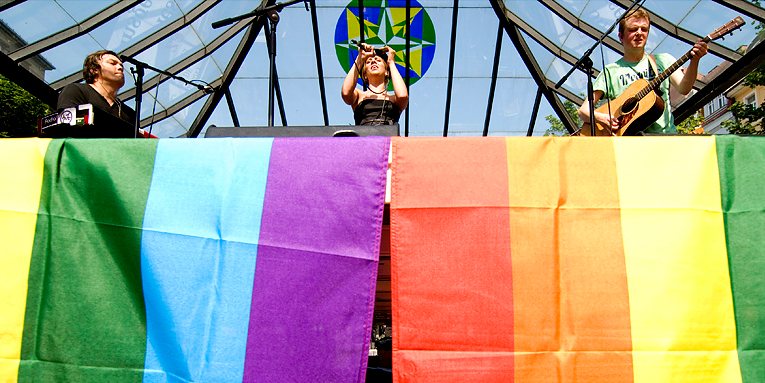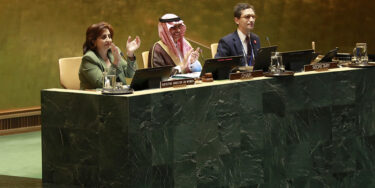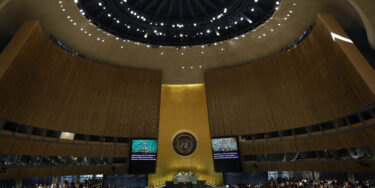Mixed Prospects for LGBT Rights in Central and Eastern Europe
15.03.15
Lesbian, gay, bisexual and transgender (LGBT) groups in Central and Eastern Europe, which still faced mixed prospects as they fight for rights and acceptance, are now taking some heart from the “failure” of a referendum in Slovakia, a member of the European Union.
Last month, a referendum called to strengthen a constitutional ban on same-sex marriage and same-sex adoption in Slovakia was declared invalid after only just over 20 percent of voters turned out.
The controversial plebiscite was heavily criticised by international rights groups, which said it pandered to homophobic discrimination and was allowing human rights issues affecting a minority group to be decided by a popular majority vote.
The campaigning ahead of the vote had often been bitter and vitriolic, including public homophobic statements by clergy, and a controversial negative commercial about gay adoption, which Slovak TV stations refused to broadcast and eventually only appeared on internet.
The commercial showed a child in an orphanage being told that his new parents were coming to collect him and, after two men appear at the door, asking: “Where’s Mum?”
Activists here say that the referendum’s outcome was a sign that, despite this campaigning, Slovaks know that LGBT people pose “no threat” to society and has positively furthered discussion about allowing registered partnerships in the country.
Martin Macko, head of the Bratislava-based LGBT rights group Inakost, told IPS: “The referendum showed that people consider the family important, but that they do not see same-sex families as a threat to traditional families. The long-term perspective regarding discussions on registered partnerships in Slovakia is positive.”
Importantly, the result has also been welcomed in other parts of Central and Eastern Europe where many LGBT groups still face intolerance and discrimination.
Evelyne Paradis, Executive Director of international LGBT rights group ILGA-Europe told IPS: “LGBT activists across Europe have welcomed the outcome of the Slovak vote … hopefully the referendum will lead to a constructive discussion about equality in Slovakia. At the same time, we know that there is a broad diversity of views in the region which means that much work remains to be done before full equality is realised.”
By Pavol Stracansky
Edited by Phil Harris
Read the full article from the IPS website




